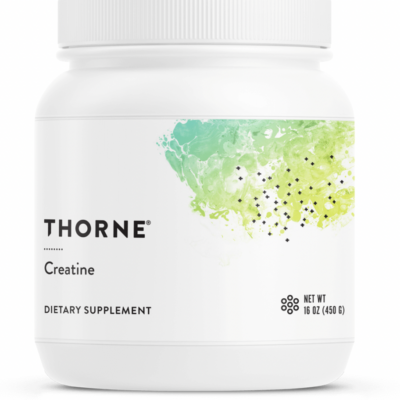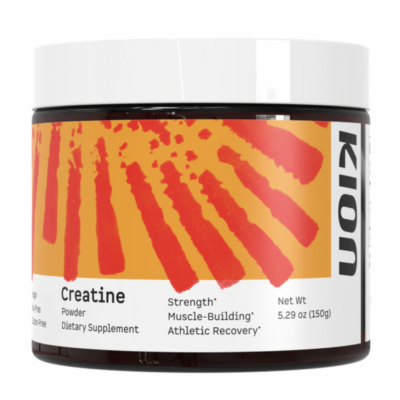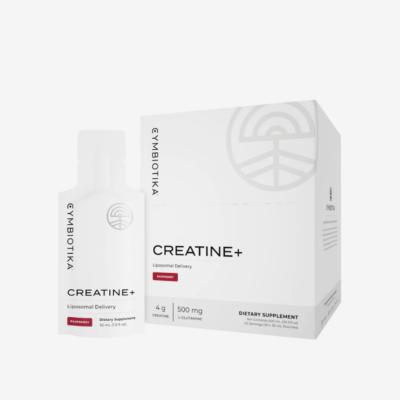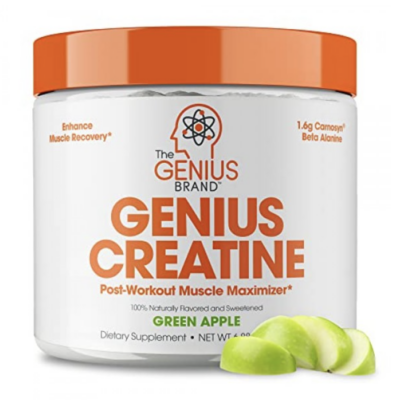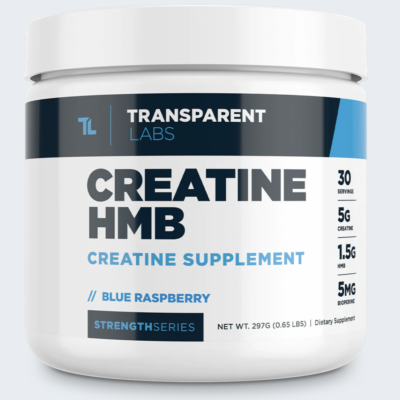We may receive a portion of sales if you purchase a product through a link in this article.
A natural, affordable, and expert-backed fitness enhancement? Count us in. Creatine is trending—and suffice to say, we’re amped. Best of all, you don’t need aspirations of bulging muscles to reap its rewards. No longer confined to fitness niches, women can (and should!) take this powerhouse supplement. Prevailing myths aside, the science is increasingly clear: creatine is also a vital asset for women. Whether you’re an endurance athlete, a cozy cardio queen, or prefer fitness with friends, creatine is worth the hype. In fact, it may be the secret weapon to crushing your fitness goals! With inclusivity in mind, we’re sharing everything to know about creatine for women. Get the 411 on what it is, the best kind to take, and why creatine shouldn’t be gender restrictive.
- What is creatine?
- The Research on Creatine
- 10 Reasons to Add Creatine to Your Supplement Routine
- Debunking Creatine Myths
- Should females take creatine?
- What type of creatine is best for women?
- How to Supplement with Creatine
- Can you overdose on creatine?
- When is the best time to take creatine?
- Best Creatine Supplements

What is creatine?
If you’re a creatine newbie, welcome. Creatine is a natural compound that our bodies make. It’s also abundant in protein-rich foods (like meat and fish). In essence, think of it as an energy booster for our muscles. When we do quick bursts of activities—like weightlifting or sprinting—our muscles need quick energy. That’s where creatine comes in. This substance helps our muscles make a unique energy molecule called ATP. And ATP is what helps us perform quick, intense exercises. So to summarize: if you want stronger, better performing muscles, creatine is key.


The Research on Creatine
With a surge in scientific data, it’s no surprise that creatine is buzzing across gyms and social media alike. Most notably, it’s no longer confined to niche corners of the fitness world. It’s becoming popular among women seeking enhanced performance, quicker recovery, and muscle growth. Creatine for women shows no signs of slowing down. Here’s why.
Scientifically Proven Performance Enhancement
Numerous studies demonstrate that creatine supplementation can lead to significant improvements in muscular strength, power output, and athletic performance. It increases our stores of phosphocreatine, in turn enhancing the primary energy currency in our muscle cells. Hello, more prolonged and intense exercise bouts.
Increased Muscle Mass and Recovery
Along with boosting performance, creatine also promotes muscle growth and expedites recovery. By facilitating protein synthesis— and increasing cell volume through water retention within muscle cells—creatine supplementation can lead to lean muscle mass gains. In turn, it contributes to greater strength and endurance over time.
Safe and Well-Tolerated
Creatine is one of the most extensively researched supplements on the market. There are decades of scientific evidence to support its safety and efficacy! When used as directed and in appropriate doses (more on this below), creatine supplementation is generally well-tolerated and not associated with any serious adverse effects.
Versatility and Accessibility
Last but not least, creatine is incredibly versatile. From elite athletes to recreational exercisers, everyone benefits. It’s also relatively inexpensive and readily available in various forms.
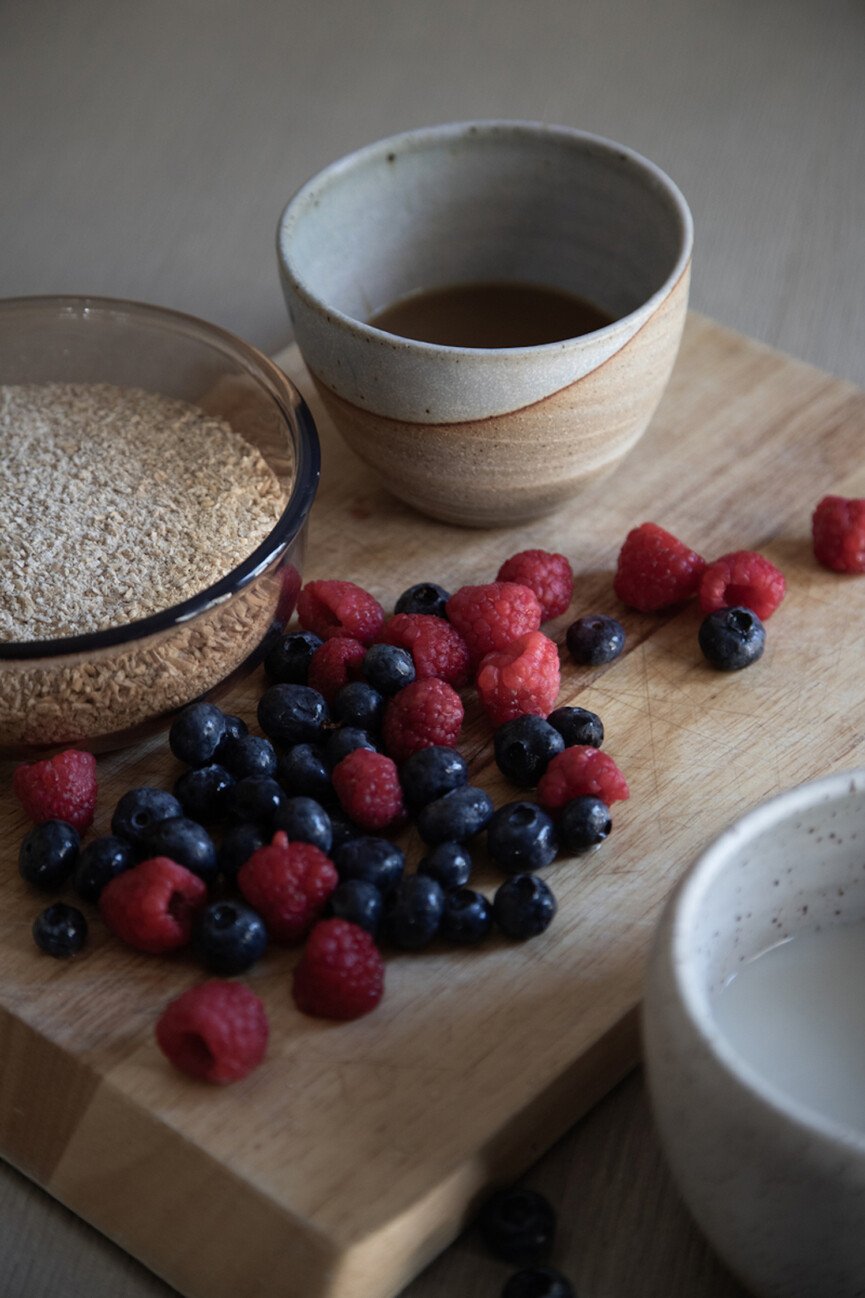
10 Reasons to Add Creatine to Your Supplement Routine
If you aren’t (quite) convinced, below are 10 reasons to add creatine to your supplement routine:
- Increased muscle strength. As mentioned, creatine supplementation enhances muscular strength, allowing women to lift heavier weights and perform better during resistance training workouts.
- Improved power output. If you love workouts like HIIT, spinning, and running, creatine can increase your power output. This leads to advantages in athletic performance and overall functional fitness.
- Enhanced muscle recovery. By replenishing ATP stores and facilitating the re-synthesis of phosphocreatine, creatine supplementation can expedite muscle recovery. Sayonara, soreness and fatigue.
- Lean muscle gain. Creatine supplementation is associated with increases in lean muscle mass, contributing to a toned and sculpted physique.
- Increased endurance. Creatine can help delay fatigue during prolonged exercise bouts, allowing women to sustain higher-intensity efforts for longer durations.
- Improved cognitive function. Muscle benefits aside, research suggests that creatine supplementation can also have cognitive benefits, including enhanced memory and mental clarity.
- Bone health. Additionally, some studies have indicated that creatine supplementation may have positive effects on bone health, potentially reducing the risk of osteoporosis and improving overall bone density.
- Metabolic health. Did you know that creatine can also support healthy blood sugar levels? That’s right. It’s known to improve glucose metabolism and insulin sensitivity, benefiting overall metabolic health (and weight management).
- Hormonal balance. One of our favorite advantages, creatine is shown to have positive effects on hormone levels, including increased levels of growth hormone and testosterone, which can support muscle growth and recovery.
- Aging support. As we age, maintaining muscle mass and strength becomes increasingly important (and hard to come by!). Creatine supplementation may help mitigate age-related muscle loss and preserve physical function.

Debunking Creatine Myths
Despite its widespread use and numerous benefits, creatine supplementation is no stranger to myths and misconceptions. One of the most common myths? That creatine causes bloating and weight gain. While, yes, creatine can increase water retention within muscle cells, this effect is temporary. And it’s localized to the muscles—rather than causing bloat throughout the body. Another popular myth: creatine is only suitable for professional athletes. However, extensive research consistently demonstrates its safety and efficacy for all, including women! When used as directed and in conjunction with a healthy lifestyle, creatine is a valuable tool in achieving fitness goals and improving overall performance.

Should females take creatine?
Yes! Women stand to gain just as much from creatine supplementation as men do. From enhancing strength to supporting muscle recovery, improving blood sugar levels and aiding in hormone balance, overall athletic performance, all of which are desirable outcomes for women engaging in resistance training or high-intensity exercise.
Pregnant or breastfeeding? While there is limited research on the safety of creatine supplementation during pregnancy and breastfeeding, it is generally not recommended without consulting your healthcare professional.
What type of creatine is best for women?
When it comes to supplementation, there are various forms of creatine available. These include creatine monohydrate, creatine hydrochloride, and creatine ethyl ester. That said, creatine monohydrate remains the most researched and widely used form, making it a safe and effective choice for women.

How to Supplement with Creatine
When it comes to creatine for women, what is the recommended dosage? It typically ranges from 3-5 grams per day. Some women may choose to undergo a loading phase where higher doses are consumed (around 20 grams per day) for the first week to saturate muscle stores more quickly, followed by a maintenance phase of 3-5 grams per day. Regardless, research suggests that a loading phase is not necessary, and you can achieve similar results by consistently consuming a smaller daily dose over time. Consider working with a sports dietitian for personalized recommendations!
Can you overdose on creatine?
While creatine is generally safe when taken in recommended doses, consuming excessive amounts may increase the risk of certain side effects. One potential risk of overconsumption is gastrointestinal discomfort, including nausea, diarrhea, and cramping. Fortunately, drinking an adequate amount of water can help mitigate these symptoms.


When is the best time to take creatine?
A topic of hot debate, some advocate for taking creatine before a workout to maximize performance. Others suggest taking it after to aid in recovery and muscle repair. However, research indicates that specific timing may not be very critical! Instead, studies that consistently taking creatine daily—regardless of whether it’s before or after exercise—can lead to increases in muscle creatine stores over time. Therefore, focus on consuming creatine consistently (rather than worrying about specific timing protocols).


Best Creatine Supplements
Ready to take the creatine plunge? These are our top five recommended creatine supplements.
This is our top pick for creatine for women! It’s high-quality, cost-effective, and contains just one ingredient—creatine monohydrate.
If you drink Kion’s electrolytes, branch out and try their creatine powder! Kion creatine is made with 100% Creapure®, the purest creatine monohydrate available with a 95% absorption rate.
We love this highly bioavailable and easily digestible creatine supplement, which also has L-Glutamine, two of nature’s most studied amino acids! Together, they support energy production, stamina, and overall health and wellness.
The best creatine supplement for HIIT workouts, specifically, Genius Brand’s creatine sparks exceptional benefits for an economical price. It comes in two flavors (unflavored and green apple) and has been third-party tested for purity and potency.
If building muscle is your top physique goal, Transparent Labs Creatine HMB is worth a shot. It contains additional ingredients that may help support strength, including hydroxylmethylbutyrate (HMB).


